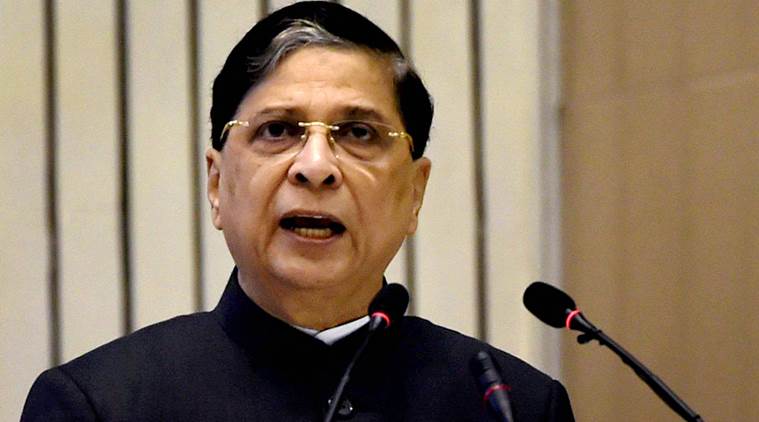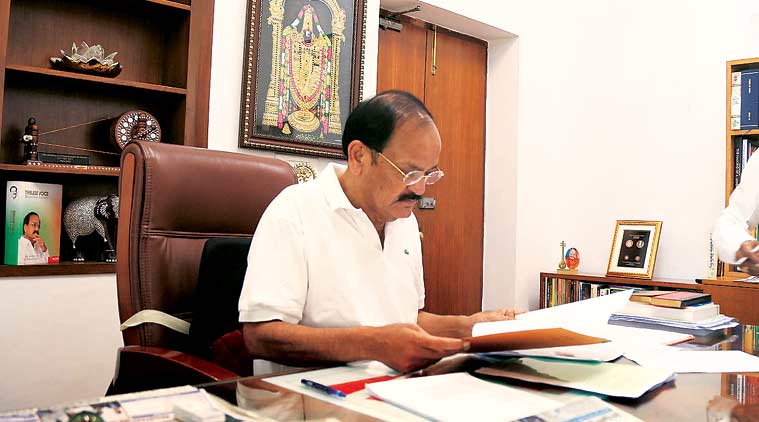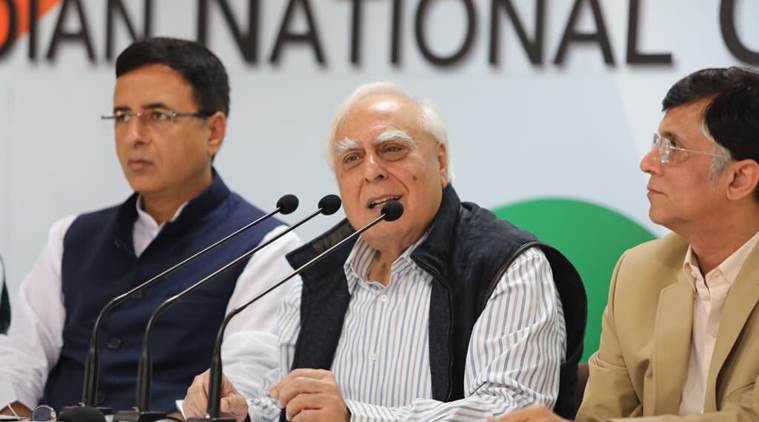 Chief Justice of India Dipak Misra
Chief Justice of India Dipak Misra
Describing Rajya Sabha Chairman M Venkaiah Naidu’s rejection of the Opposition notice seeking the impeachment of Chief Justice of India Dipak Misra as “illegal”, “unconstitutional” and “hasty”, the Congress Monday said MPs who had signed the notice would challenge the order in the Supreme Court. The party said it hoped the CJI would not decide the bench to hear the challenge.
Congress president Rahul Gandhi, addressing a party function in New Delhi, alleged that institutions were being filled by “RSS people”.
“Whether it is the chief ministers of different states, whether it is the offices of the ministers, whether it is the courts, all of them are being filled by people from the RSS with one ideology” which, he said, runs counter to the Constitution. He accused the government of “trampling upon and suppressing the Supreme Court”.
CPM general secretary Sitaram Yechury, who first mooted the idea of moving an impeachment motion, told The Indian Express that the only option left is to approach the court. He said “there has not been application of mind” while rejecting the notice.
Questioning the “hurry” in rejecting the motion notice, he said it “seems to be because they don’t want to morally deprive the Chief Justice of deciding on various administrative aspects of which bench will hear which case”.
“And that, in the light of the judgment on the (judge) Loya case, is an ominous signal for our democracy and to the integrity of our judiciary which is very dangerous for the future. I am hoping that the Chairman of the Rajya Sabha reconsiders his decision,” he said.
Congress leader Kapil Sibal said Venkaiah Naidu’s order is “unprecedented… illegal… ill-advised and hasty”. “Never before in the history of India has an impeachment motion moved by the members of Parliament been dismissed at the preliminary stage. It is illegal because the Chairman has passed an order which is required to be passed after a full-fledged inquiry,” he said.
 Rajya Sabha Chairman and Vice President M Venkaiah Naidu at his residence in New Delhi, Monday. (Express Photo: Renuka Puri)
Rajya Sabha Chairman and Vice President M Venkaiah Naidu at his residence in New Delhi, Monday. (Express Photo: Renuka Puri)
Yechury agreed. He said the Chairman “can take such a decision” only if the inquiry report finds the motion’s case as prima facie untenable. “Without going through that process and doing this, we think is not correct,” he said.
The Congress said it would move a petition in the Supreme Court, challenging the Chairman’s order. “We are confident that when we move that petition, the CJI has nothing to do with it so that it is heard and the serious issues which are constitutional in nature, and which will determine whether we will bring transparency to the process or not, will be decided by the court,” Sibal said.
He said the Chairman should, at this stage, have only verified whether the motion is in order and the signatures adequate and genuine. “If it is absolutely frivolous which has nothing do with misbehaviour of the judge, he can take a call. He doesn’t act in any quasi judicial capacity at that stage,” he said.
Referring to the Chairman’s contention that the charges made in the petition do not constitute proved misbehaviour under Article 124(4), he said it was for the inquiry committee to decide whether the charges are proved or not.
 Congress leader Kapil Sibal said the party would move the Supreme Court to challenge the “unprecedented, illegal, ill-advised and hasty order”. (File)
Congress leader Kapil Sibal said the party would move the Supreme Court to challenge the “unprecedented, illegal, ill-advised and hasty order”. (File)
“Proved misbehaviour comes after the inquiry. It does not come before the inquiry… that is why the order is illegal. The Chairman has said we have not been able to prove misbehaviour. How can something be proved before it is proved? It can only be proved after an inquiry,” he said.
Sibal said the rejection was also ill-advised. “Because the procedure requires him to consult the CJI… He can’t consult the CJI obviously. So he should have consulted members of the Collegium. He has chosen not to do that. Some of the allegations relate to what is happening in court. He has not consulted any judge about what is happening in the court. One allegation is that he (CJI) sends most sensitive matters to particular judges. He should have consulted why judges feel disturbed about that. Without consulting the judges in respect of matters that happened in court, it was ill-advised of him to reject,” he said.
CPI leader D Raja said: “Even though the Chairman cannot decide upon merit, he has decided. So what are the grounds on which he has taken that decision will have to studied and examined and all options must be explored. All parties must consult and decide on the future course.”